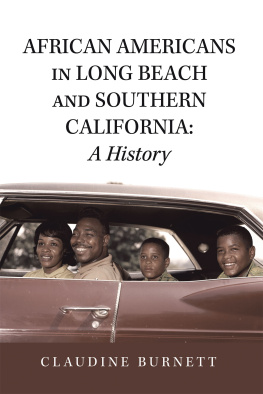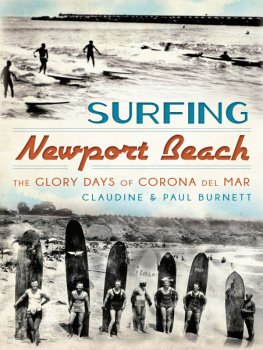Philippa Carr
Voices in a Haunted Room
On my seventeenth birthday my mother gave a dinner party to celebrate the occasion.
At that time I had been living at Eversleigh for three years. Little had I thought when I had left my grandfathers chateau that I should never see him again. Of course I had known that there was great anxiety throughout France. Even a girl as young and ignorant of the world as I had been, could not be unaware of that, especially as my own grandmother had met a violent death at the hands of the mob. That had had a devastating effect on everyone around me.
Afterwards my mother, my brother Chariot and I had left our home at Tourville and had gone to live in my grandfathers chateau of Aubigne in order to comfort him, and Lisette, my mothers friend, and her son, Louis Charles, had come with us.
I had loved Aubigne and my grandfather had seemed a splendid gentleman, though a very sad one, unlike the man I had known before the death of my grandmother. Yes, no one could help being aware of a brooding menace; it had been everywhere-in the streets, in the country lanes, in the chateau itself.
Then my mother had brought us to England-myself, Chariot and Louis Charles-to visit her relatives, and there everything was different. I was fourteen at the time and adapted myself quickly. I felt it was my home. I knew my mother felt like that too; but that was understandable because she had lived there in her childhood. There was a certain peace -indefinable-for it was by no means a quiet household. No household could be with Dickon Frenshaw in it. Dickon hi a way reminded me of my grandfather.
He was one of those dominating men of whom everyone is in awe. Such men dont have to ask for respect; it is freely given them, perhaps because they take it for granted that it must be there. He was tall, quite handsome, but what one was most aware of was that sense of power which emanated from him. I think we were all aware of it-some resented it, like my brother Chariot, and I fancied on some occasions that Dickons own son Jonathan resented him as well.
So through those June days we rode, we walked, we talked, and my mother spent a lot of time with Dickon, while I was delighted with the company of his children, David and Jonathan, who both showed an interest hi me and teased me because of my imperfect English; and Sabrina, Dickons mother, looked on benignly because Dickon liked to have my mother there, and Dickons slightest wish was law to Sabrina.
She was turned seventy then, but she did not look her age. She had a great purpose in living, and that was anticipating and granting the wishes of her son.
It was clear to us all even then that Dickon would have liked my mother to stay.
If ever two people were attracted by each other, those two were. They seemed very old to me and it was a source of wonder that two such mature people could behave like young lovers-and ones own mother, at that, made it more surprising than ever.
I remember the time when my father had been alive. She had not been the same with him; and I think she did not mind very much when he had gone to fight with the American colonists. That was the last we saw of him for he had died in the fighting, and it was soon after that when we left Tourville and went to my grandfather at Aubigne.
Then came this holiday. My mother had refused to leave my grandfather and he had promised to come with us but he had been too ill right at the last moment when it was too late to cancel our arrangements and I had never seen the chateau since.
I remembered well that day when my mother received the message that he was very ill and prepared to return to France. There had been hurried consultations and at length she had decided to leave us children -as she called us-with Sabrina, and had travelled back with one of the grooms who had brought the message from Aubigne.
Dickon had been in London at the time and Sabrina had tried to persuade my mother not to go because she knew how upset Dickon would be by her departure when he returned to find her gone. But my mother was adamant.
When Dickon returned and discovered that she had left for France, he was frantic and lost no time in setting out after her. I did not fully understand why he should have been so disturbed until I heard Chariot talking with Louis Charles and Jonathan.Theres trouble over there, said Chariot, big trouble. That is what Dickon is afraid of.
She should never have gone, said Louis Charles.
She was right to go, retorted Chariot. My grandfather would want to see her more than anyone when he is ill. But she should have taken me with her.
I joined in then. You would, of course, fight all the mobs in France.
What do you know about it? asked Chariot witheringly.
If I knew what you knew, that wouldnt amount to much, I replied.
Jonathan grinned at me. I always felt that he was amused by me. He provoked me, but in a special sort of way-not in the least like Chariot, who was contemptuous.
Youre an ignoramus, said Chariot.
Youre a swaggering braggart.
Thats right, Claudine, said Jonathan. Stand up for yourself. But theres no need to tell you to do that. Shes a bit of a firebrand, our little Claudine, eh?
A firebrand? I asked. What is this firebrand?
Id forgotten Mademoiselles imperfect knowledge of the language. It is one who is always ready for trouble, Claudine ... and very energetic in pursuing it.
And you think that describes me?
I know it. And Ill tell you something else, mademoiselle. I like ii. I like it very much indeed.
I wonder how long theyll stay in France, went on Chariot, ignoring Jonathans banter.
Until our grandfather is better, of course, I said. And I expect we shall be going back soon.
That was the idea, said Chariot. Oh I do wonder what is happening there. It was so exciting ... in a way ... but awful that people are hurt. One wants to be there when something important is happening in ones country. Chariot spoke earnestly and it occurred to me then that he did not feel as I did about Eversleigh. This was an alien place to Mm. He was homesick for the chteau, for a way of life which was different from that of Eversleigh. He was French. Our father had been French and he took after him. As for myself, I was like my mother, and although she had had a French father, her mother had been English, and it had not been until she was well past her youth that she had married my grandfather and became the Comtesse dAubigne, presiding over a chteau, living the life of a lady of the French nobility.
Ours was a complicated household, and I suppose that accounted for many things.
I shall never forget the day they came home-my mother and Dickon. News was filtering into England from France, and we were realizing that the long-awaited revolution had broken out at last. The Bastille had been stormed and the whole of France was in turmoil. Sabrina was beside herself with anxiety to contemplate that her beloved Dickon was caught up in the holocaust.
I never doubted for one moment that he would not emerge triumphant. And he did, bringing my mother with him.
When they reached the house one of the grooms saw them and shouted: Hes here. Masters here. Sabrina, who had been watching and waiting during those days of anxiety, ran out and I saw her in the courtyard, laughing and crying at the same time.
I went out too and was caught in my mothers arms. Then Chariot and all the others came. I thought Chariot was just a little disappointed. He had been planning to go and get them out of France. Now he no longer had an excuse to return there.
And what a tale they had had to tell-how they had escaped death by inches, how my mother had actually been taken to the mairie and the mob were round the place screaming for her blood. She was after all the acknowledged daughter of one of the leading French aristocrats.





